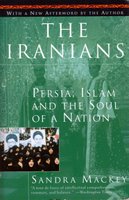
Afraid for their profits and their freedom, foreign contractors hired by the shah to build the infrastructure of his new Iran walked away from dozens of major government projects—roads, steel mills, petrochemical plants, and nuclear reactors. As a result, the shah's fast track to development ended and Iranian nationals working for these companies joined the unemployed. Committees of workers within functioning industries contributed to the chaos. In pursuit of higher wages, workers often expelled owners from their factories or held them hostage. Sometimes these instant labor unions arranged with sympathetic revolutionary committees to put members of Iran's historically the entrepreneurial class in jail. This harassment, intimidation, and incarceration only fed the flight of entrepreneurial and managerial talent critical to the reconstruction of post-revolutionary Iran with its 2.5 million unemployed.
The new government desperately needed to jump-start production, reduce unemployment, and stem the flight of capital and expertise yet the corresponding imperatives created by the expectations of the revolution demanded that all vestiges of the old order be overturned' in the interests of the underprivileged. Declaring its commitment td the masses who toppled the shah, the revolutionary government nationalized the banking system on June 8, 1979, and the privately owned insurance companies on June 25. On July 5, 1979, came the most sweeping nationalization measure of the revolution—the Law for the Protection and Expansion of Iranian Industry. Overnight the Islamic Republic acquired ownership of most of the country's privately owned industry and many of its businesses. Heavy industry including! metals, automobile assembly, chemicals, shipbuilding, aircraft manual facture, and mining; light manufacturing spanning home furniture tO; soft-drink bottling facilities; and retail activities such as department stores and a supermarket chain all went under ownership of the government. In June 1980, government again reached out to officially seize dwellings left empty by fleeing owners. Many went to the rural migrants who continued to pour into the cities to collect their rewards) from the revolution. Thus overnight deserted apartments joined first-f class hotels as housing for the poor.
Despite the flurry of expropriation, common wisdom warned that the Islamic government faced serious political problems if economic improvement did not come. But the revolution in the early years of the Khomeini era chose to concentrate more on morality than economics. The core of the regime's ideology, so powerfully articulated by the revered Ayatollah Khomeini, had lifted the revolution out of the material world of politics and placed it in the ethereal realm of the spiritual. Confirming that the revolutionary government gave priority to moral needs over material well-being, Khomeini disparaged the revolutionaries who concerned themselves with such mundane and worldly matters as the "price of watermelons." In a sense, Khomeini reflected the Iranians' enduring conflict over the material and spiritual that winds back into the Persia of the Achaemenians. He told the faithful, "Some persons have come to me and said that now the revolution is over, we must preserve our economic infrastructure. But our people rose for Islam, not for economic infrastructure. What is this economic infrastructure anyway? Donkeys and camels need hay. That's economic infrastructure. But human beings need Islam."
Yet the revolutionary clerics cared enough about economics to tend the interests of the mass of their constituency—the lower classes. To hold their loyalty, revolutionary economics combined the idea of a highly centralized economy on the lines of the Western welfare state with the communal aspects of Islam. Together they created what might be termed Islamic socialism. But not all the clerics' constituencies agreed. Between 1979 and the end of 1983, a widening dispute over nationalization of business, expropriation of property, and state control of the economy gathered in intensity and complexity. Rather than adopting clear and consistent policies, the Islamic government erected a tent under which the custodians of the revolution debated economic philosophy and Islamic doctrine necessary to the revolution's implementation. Among a variety of issues, it was land reform, the great explosive issue between the clerics and the shah in 1963, that first crystallized all the contradictions in the application of Islamic law to matters of public policy, the search for social justice, the conflicting authority of the Majlis and the Council of Guardians, and the nature of the faqih, the ultimate arbiter in Islamic government.

















